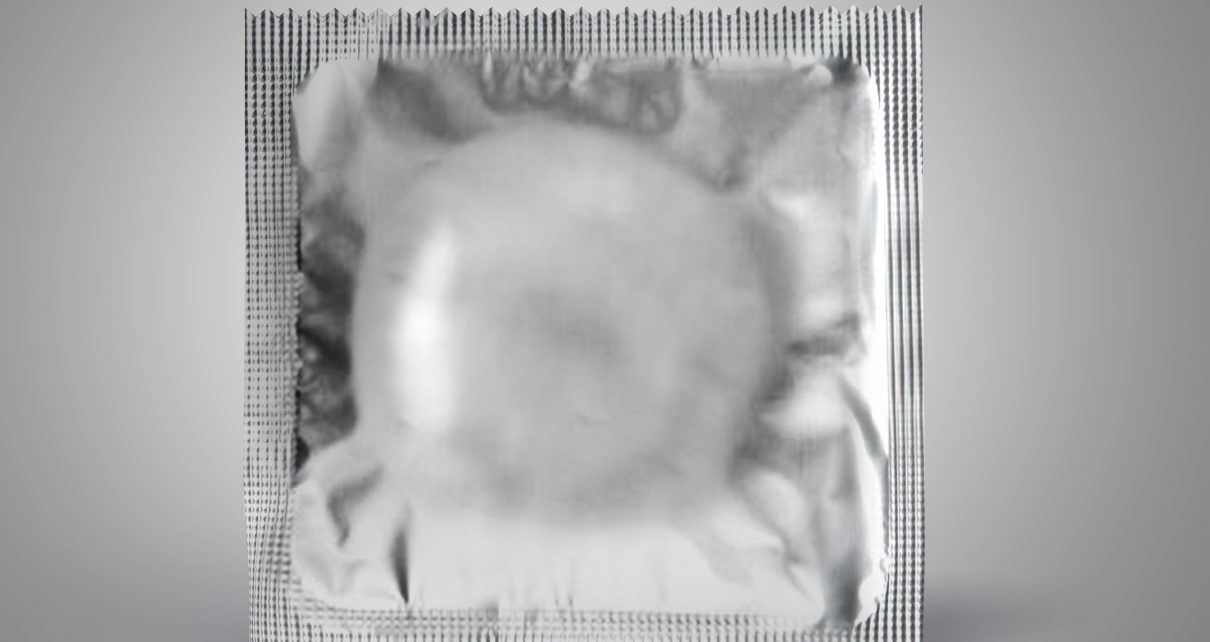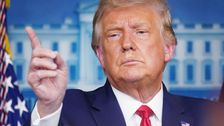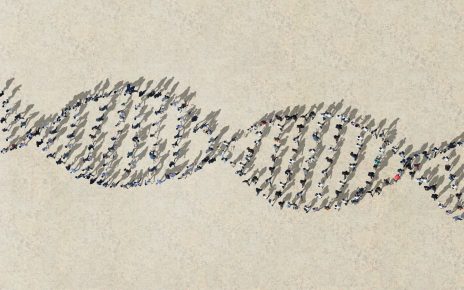In the midst of rapidly rising case counts and hospitalizations during the COVID-19 pandemic, a small but incredibly loud segment of U.S. society has adamantly refused to wear masks. Many of them are men, who seem to view masks as emasculating face condoms that must be rejected. For example, a look at Donald Trump’s debacle of a rally in Tulsa, Oklahoma, on June 20, shows that men in his base, like Trump himself, avoid wearing masks. Women like Ivanka Trump, by contrast, can choose a mask or not because they have no masculinity to protect.
In reality, whether it’s a mask or a condom, resistance to these barrier methods of protection—both of which keep the wearer from transmitting a virus to someone else—clearly presents a danger to public health. A man without a mask is willfully endangering people around him by refusing to block his spit and the viruses it could contain. Why would he take these risks to himself and to others?
When HIV emerged in the United States, a key part of the public health response was to urge consistent condom use. Although the advice made obvious sense, in some pockets of the population, people resisted it. Researchers began to dig into the social factors that motivated this resistance. They found that among men who were having sex with women, “masculine ideology” was associated with rejection of condom use.
At the time the research was being conducted, three factors were cited as the pillars of this ideology: status, toughness and anti-femininity. Today, the concept has been expanded a bit to encompass other features. The American Psychological Association has defined this ideology as a “particular constellation of standards” that demands that men ascribe to “adventure, risk, and violence.” Certainly, choosing not to wear the simplest of protective gear during a pandemic is both a risk and an adventure.
Perhaps not surprisingly, where this conceptualization of manliness prevails, the dominant avatars who embody it are white men with epic swagger. As one researcher described it, this “celluloid masculinity” muscling around on screens, perhaps most famously in the form of characters played by Arnold Schwarzenegger, represents a “dominant Western exemplar of manhood.” These characters, you see, despite the copious body armor and weaponry they tote around in their films, would never, ever don simple barrier protection devices because viruses can sense fear.
In today’s refusal to wear a mask, we see echoes of this condom rejection embedded in white masculine ideology. Led by the Masculinity Performer in Chief, these men are making what increasingly looks like the last stand for that celluloid masculinity. As in another infamous “last stand,” they risk ending up dead on the battlefield they insisted on creating, along with the casualties they take with them.
A lot of people are baffled at this behavior—at balking at something so basic, a disease transmission preventative that has such a low barrier to access. Why do these men perform this mask-free “celluloid masculinity” in the literal face of a threat? The reason is that eschewing a mask sends a strong social signal, in which the bare face is the performance. But who is the audience?
Understanding this behavior requires understanding the level of investment that these men have made in their masculine ideology. Trump, reality notwithstanding, is the high priest of this ideology. When he rejected masks, his became the performance to imitate. These men have made a deep commitment and probably engaged in some willful self-deception to remain loyal to Trump. Donning a mask would mean wasting their investment and the perceived fruits of all that self-compromise.
So, they go maskless. In doing so, they expect that their masculine ideology group will accept them, respect them and not reject them.
The irony is that these men think they’re manifesting the ideal of the rugged, individualistic American, when their refusal really traces in part to a fear of what other people will think about them. Drunk on a toxic brew of self-interest and that masculine ideology, they mistake their refusal to protect themselves and others as a mark of character when instead, it’s a mark on their characters.
Some people who would like to mitigate the harm of these behaviors have clearly recognized the value of turning to those personifications of celluloid masculinity. On June 18, California Governor Gavin Newsom issued a statewide order requiring that people wear masks in public places. The hot reaction he drew would have been suitable if he’d, say, required all Californians to adopt a baby cobra. There was even a briefly trending “recall Newsom” hashtag on Twitter.
Likely anticipating this bizarro-world backlash, Newsom joined forces with his surviving predecessors—Jerry Brown, Gray Davis, Pete Wilson and Arnold Schwarzenegger—to make a public service announcement urging people to wear masks. Each governor had a couple of lines to deliver. Schwarzenegger’s lines, were spoken with all the hypermasculine gravitas of his celluloid hero John Matrix: “This is not about being weak…. Just do it.”



